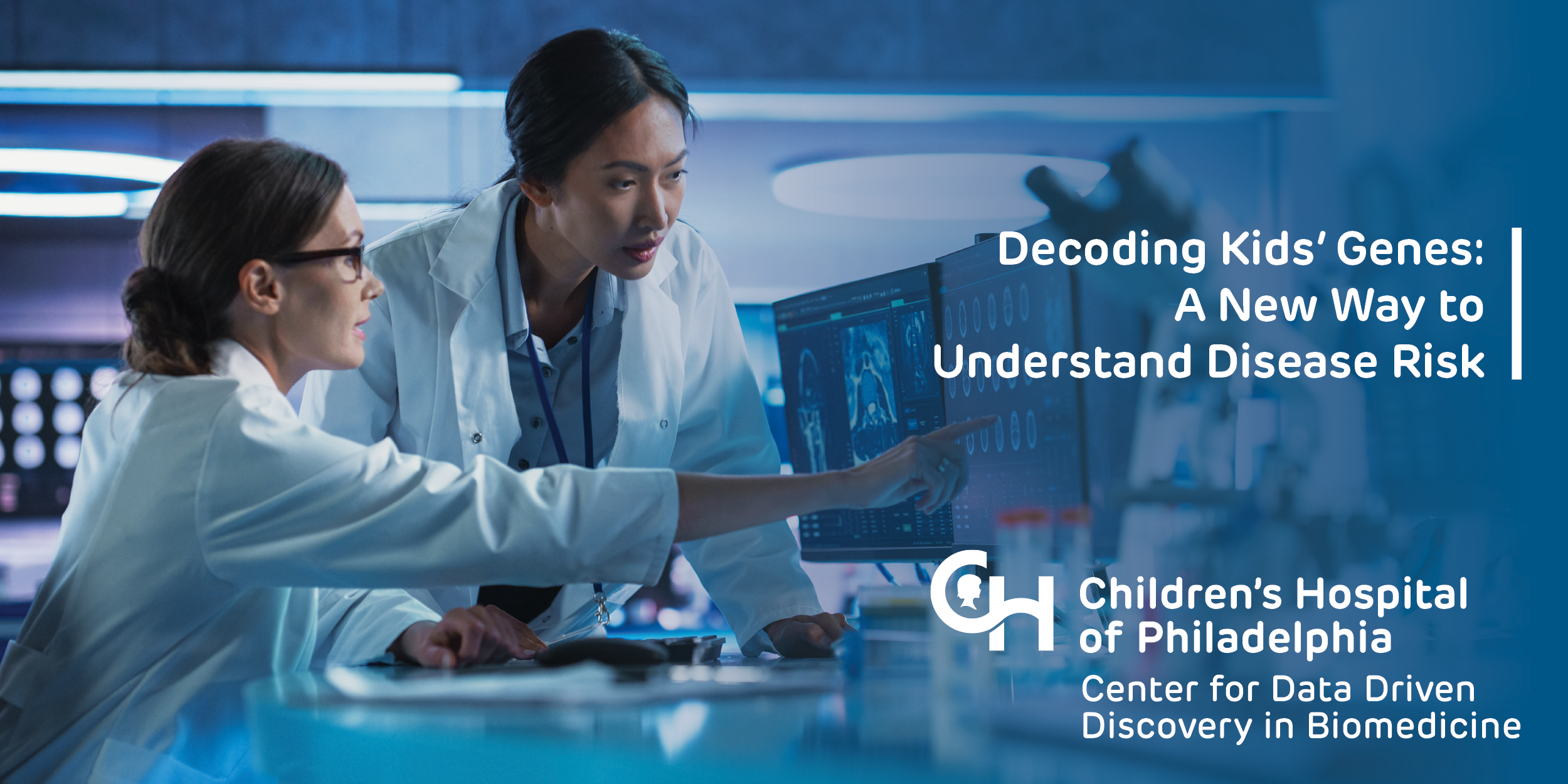Decoding Kids’ Genes: A New Way to Understand Disease Risk

The Center for Data-Driven Discovery in Biomedicine (D³b) stands at the forefront of pediatric cancer and rare disease research. With a deep-rooted commitment to improving the lives of children, the multidisciplinary D3b team unites expertise from basic science, translational research, precision medicine, bioinformatics, and genomic research. By leveraging innovative technology and collaborating with top-tier institutions globally, D³b is revolutionizing how the world understands, diagnoses, and treats these complex conditions. And, through its robust cloud-based tools and open-science commitment, D³b empowers researchers to unlock the mysteries of pediatric diseases, accelerate clinical trials, and ultimately deliver better outcomes for children.
As part of its continued effort to change the landscape of pediatric disease research, D3b has been instrumental in developing a new tool, AutoGVP, that promises to significantly streamline the classification of potential disease-causing variants inherited from parental bloodlines. The development was a collaborative effort between D³b and the Center for Childhood Cancer Research (CCCR) at the Children’s Hospital of Philadelphia (CHOP), and the National Cancer Institute (NCI). This new tool introduces an automated approach to germline variant annotation and classification.
The Challenge of Gene Variant Classification
Identifying and classifying germline sequence variants associated with inherited diseases have been a cornerstone of biomedical research for decades. However, the sheer volume of variant data generated by modern sequencing technologies has posed significant challenges for researchers. Manual curation and classification of variants are time-consuming and prone to errors, hindering researchers’ abilities to uncover the genetic underpinnings of complex diseases.
The Solution: AutoGVP
Dr. Sharon Diskin, Associate Professor of Pediatrics at the University of Pennsylvania and CHOP CCCR, led the effort to develop AutoGVP in partnership with Dr. Jo Lynne Rokita at D³b (CHOP) and Dr. Jung Kim at the National Cancer Institute (NCI). This novel open-source tool can predict whether a genetic change passed down from parents will likely cause a disease or health problem. Included among the key features that appeal to AutoGVP users:
- Open-source and Dockerized: AutoGVP is freely available to the research community and is distributed as a Docker image (a packaged set of software including all the needed pieces, making it easy to use in various computing environments) and the CAVATICA research analytics application.
- Clinically-Focused Classifications: The tool provides clinically relevant classifications for variants associated with childhood cancer and/or other diseases, aligning with current American College of Medical Genetics (ACMG) guidelines.
- Scalability: AutoGVP is not just a tool; it’s a powerful ally. Designed to handle large-scale variant datasets, it empowers researchers to annotate and analyze data from large-scale sequencing projects efficiently. With AutoGVP, researchers can tackle even the most complex research projects.
- Flexibility: The tool offers customizable options for users to tailor the classification process to their specific research needs.
AutoGVP has the potential to revolutionize biomedical research by providing researchers with a powerful tool for variant classification. By automating a previously time-consuming and error-prone process, AutoGVP can significantly accelerate the pace of discovery and improve the accuracy of genetic risk assessments, including:
- Genetic Risk Assessment: AutoGVP can identify high-risk individuals for inherited diseases, enabling early diagnosis, monitoring, and intervention.
- Drug Discovery: By understanding the genetic basis of diseases, researchers can develop more targeted and effective therapies.
- Precision Medicine: AutoGVP can help to personalize treatment plans based on an individual’s genetic makeup.
The development of AutoGVP represents a significant milestone in automating germline variant classification. By providing researchers with a reliable and efficient tool for variant annotation, AutoGVP undoubtedly accelerates scientific understanding of the genetic basis of human diseases and paves the way for new and innovative approaches to prevention and treatment.
Access AutoGVP
Researchers can access the AutoGVP open-source dockerized workflow, which is freely available on GitHub at https://github.com/diskin-lab-chop/AutoGVP.
Access the Cavatica application at https://cavatica.sbgenomics.com/public/apps/cavatica/apps-publisher/autogvp.
